The humble baked potato – a culinary chameleon that can transform from a simple side dish to a hearty meal with the right toppings. But getting that perfect baked potato, with a fluffy, pillowy interior and a gloriously crispy skin, is an art form that requires a little more than just tossing a spud in the oven.
I've been on a quest for the perfect baked potato for years, experimenting with countless techniques and recipes. It's been a journey of both triumphs and disasters, but along the way, I've learned a thing or two about what it takes to bake a potato that's truly worthy of the name. This guide isn't just about the oven time; it's about understanding the potato's personality, its preferences, and how to coax the very best out of it.
(Part 1) The Perfect Potato: A Deeper Dive
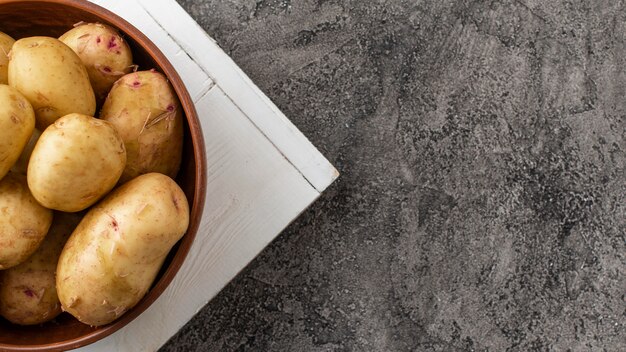
Choosing the Right Spud: Not All Potatoes Are Created Equal
When it comes to baking, not all potatoes are created equal. My go-to choice is the maris piper, a starchy potato with a firm texture that stands up beautifully to baking. It has a subtle sweetness that complements a wide range of toppings, from the classic butter and cheese to more adventurous concoctions.
But let's explore some other options:
- king edward: A good choice if you're looking for a potato with a little more moisture. It tends to be a bit fluffier than the Maris Piper and is often preferred for its delicate flavor.
- Desiree: For those who enjoy a slightly nutty flavor, the Desiree is a fantastic option. It holds its shape well when baked, making it ideal for stuffing with various toppings.
- Russet: This potato, often called the Idaho potato, is a staple in American cuisine. It's known for its high starch content, which results in a fluffy, light texture when baked. It's a good all-around choice for baked potatoes.
- Yukon Gold: A waxy potato with a buttery flavor, Yukon Golds are often used for roasting and mashing. While they can be baked, their texture is a bit denser than starchy potatoes.
Remember to choose potatoes that are firm to the touch, free of blemishes and bruising. A potato with a soft spot or signs of rot will likely not bake evenly.
The Importance of Size: It's Not Just About the Quantity
The size of your potato plays a crucial role in determining the baking time. A small potato will bake much faster than a large one. For even cooking, it's best to select potatoes that are roughly the same size. If you're using a mix of sizes, be prepared to adjust the baking time accordingly.
I often find it helpful to categorize potatoes by size to have a better idea of the baking time:
- Small (under 150g): These potatoes will bake quickly, often needing only 40-50 minutes.
- Medium (150-250g): A good standard size, they'll typically take 50-60 minutes to bake through.
- Large (over 250g): These big guys will need a bit more time, usually around 60-75 minutes, to reach that perfect fluffy texture.
Prepping for Perfection: Setting the Stage for Baking Success
Before your potatoes hit the oven, a little prep work goes a long way. I always start by giving them a good scrub under cold running water to remove any dirt or debris. Then, I dry them thoroughly with a clean tea towel. This is essential for achieving that beautiful, crispy skin.
Now, here's where opinions diverge: to prick or not to prick. I'm firmly in the "prick" camp. Piercing the potato with a fork a few times helps release steam during baking, preventing it from exploding in the oven. It's a simple precaution that can save you a lot of mess and potential oven mishaps.
(Part 2) Oven Time: The Heart of the Baking Process
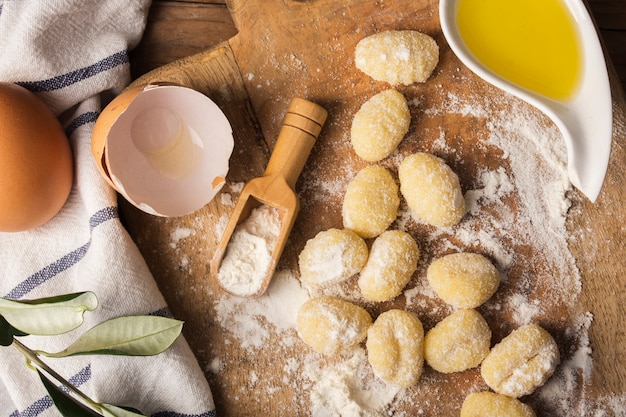
Now, we're getting to the heart of the matter: oven time. Many people assume that all potatoes need the same amount of time in the oven, but as we've discussed, size and the potato's type are major factors. So, consider the following guidelines as a starting point and be prepared to adjust based on your oven and your chosen potato.
Baking Time for Different Potato Sizes: A Guide for Success
I prefer to bake my potatoes at a medium-high heat, around 200°C (400°F). This helps to create a crispy skin and a fluffy interior. Here's a more detailed breakdown of baking times for different potato sizes:
| Potato Size | Baking Time | Notes |
|---|---|---|
| Small (under 150g) | 40-50 minutes | These potatoes bake quickly, so keep a close eye on them. |
| Medium (150-250g) | 50-60 minutes | A good standard size, they'll typically take about an hour to bake. |
| Large (over 250g) | 60-75 minutes | Larger potatoes require a longer baking time to ensure they're cooked through. |
Remember, these are just guidelines. Every oven is unique, and the specific potato you're using will also influence the baking time. It's always best to check for doneness by piercing the potato with a fork. If it goes in easily and the potato feels firm, it's ready.
The "Fork Test": Your Reliable Guide to Potato Perfection
The "fork test" is a simple but essential tool for determining whether your potato is cooked through. Gently insert a fork into the thickest part of the potato. If it slides in easily, with minimal resistance, your potato is cooked. If it feels firm or you meet resistance, give it a little more time in the oven.
Don't be afraid to check the potato multiple times throughout the baking process. Ovens vary, and some potatoes might take longer than others to reach that perfect level of doneness. Patience, my friend, is key!
(Part 3) Beyond the Basics: Mastering the Art of Crispy Perfection
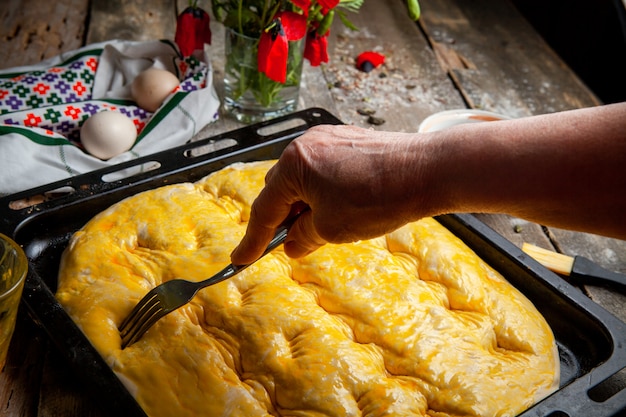
Now that we've covered the fundamental principles of baking a potato, let's delve into some tips and tricks that can take your baked potato from ordinary to extraordinary. These are the subtle nuances that make a world of difference in the final outcome.
The Power of Preheating: Setting the Stage for Even Cooking
Just like with any baking recipe, preheating your oven is crucial for ensuring even cooking. Preheat your oven to 200°C (400°F) about 10 minutes before placing your potatoes inside. This allows the oven to reach the desired temperature, ensuring your potatoes bake evenly from the start.
The Magic of Foil: Trapping Moisture for a Fluffy Interior
I like to wrap my potatoes in foil for the first 30-40 minutes of baking. This creates a steamy environment, trapping moisture and resulting in a fluffy, tender interior. Once the potatoes are almost cooked, I remove the foil for the last 15-20 minutes. This allows the skin to crisp up beautifully.
While baking paper can be used as an alternative, I find that foil provides a slightly better seal, keeping the moisture in more effectively.
Don't Overcrowd the Oven: Giving Potatoes the Space They Need
This may seem like common sense, but overcrowding your oven can lead to uneven cooking. The potatoes won't bake evenly if they're crammed together, hindering the circulation of hot air. Ideally, leave some space between each potato to allow for good airflow. If your oven is too small, bake your potatoes in batches.
(Part 4) The Art of Toppings: Elevating Your Baked Potato to New Heights
The beauty of the baked potato lies in its incredible versatility. It's a blank canvas for endless toppings, allowing you to unleash your creativity and craft a culinary masterpiece that reflects your taste. Here are a few of my favourite topping combinations:
Classic Comfort: Butter and Cheese - A Timeless Duo
This is a timeless classic for a reason. Nothing beats the simplicity of a generous pat of butter and a generous sprinkle of sharp cheddar cheese. I love to use a good quality butter, like salted butter, to add a touch of depth. I also like to add a sprinkle of chopped chives or parsley for extra flavor and a bit of freshness.
Spicy Delight: Chilli Con Carne - A Taste of Adventure
For those who like a bit of heat, chilli con carne is a delicious and adventurous topping. The spiciness of the chilli pairs beautifully with the creamy potato, creating a truly satisfying flavor combination. I like to add a dollop of sour cream on top for a touch of tanginess and a cooling contrast to the heat.
Mediterranean Twist: Hummus and Feta - A Lighter, More Flavourful Option
For a lighter, more Mediterranean-inspired topping, hummus and feta are a winning combination. The creamy hummus perfectly complements the fluffy potato, while the salty feta adds a burst of bright flavor. A drizzle of olive oil and a sprinkle of paprika provide additional depth and complexity.
(Part 5) Baked Potato Hacks: Making Life Easier Without Sacrificing Flavor
Over the years, I've discovered a few hacks that have made my baked potato life a lot easier. These are little tricks that can save you time and effort without compromising on flavor.
The Microwave Method: A Shortcut for Busy Weeknights
If you're short on time, you can always give your potatoes a quick microwave boost before baking them in the oven. This will help to soften the potatoes and reduce the overall baking time. Microwave your potatoes for 3-5 minutes on high power, then transfer them to the oven and bake as usual.
While this method can be a lifesaver on busy weeknights, keep in mind that it won't achieve the same crispy skin as baking in the oven alone. But it's a good option for softening the potato and reducing the overall cooking time.
The slow cooker Solution: Hands-Off Baking for Busy Days
If you're a fan of slow cooking, you can also bake your potatoes in a slow cooker. This is an excellent option for those who prefer a hands-off approach. Simply place your potatoes in the slow cooker, add a cup of water, and cook on low for 6-8 hours. The potatoes will come out super fluffy and tender.
The instant pot Magic: A Quick and Easy Way to Baked Potato Bliss
For those who own an Instant Pot, you can whip up a perfect baked potato in no time. Add a cup of water to the Instant Pot, place your potatoes in the trivet, and cook on high pressure for 10-12 minutes. Let the pressure release naturally for 10 minutes, then carefully remove the potatoes and enjoy.
(Part 6) Mistakes to Avoid: Ensuring Baked Potato Success
As with any culinary adventure, there are certain pitfalls to avoid. Here are a few common mistakes that can lead to a less-than-perfect baked potato:
Overbaking: The Enemy of Fluffy Texture
Overbaking is a common mistake that can leave you with a dry and rubbery potato. Always check your potatoes for doneness with a fork, and don't leave them in the oven any longer than necessary. If the potato feels hard or dry, it's likely overbaked.
Not Pricking the Potato: Preventing a Messy Explosion
Failing to prick your potato before baking can lead to a potentially disastrous explosion in the oven. This can be a messy and dangerous situation, so it's always best to err on the side of caution. Pricking the potato allows steam to escape during baking, preventing it from building up and causing an explosion.
Using the Wrong Potato: Choosing the Right Texture for Baking
As we've discussed, choosing the right potato is crucial for a successful baked potato. Using a waxy potato instead of a starchy one can result in a dense and chewy texture that's not as enjoyable to eat.
(Part 7) The Importance of Patience: A Culinary Virtue
Baking a potato may seem like a simple task, but it takes time and patience. You can't rush the process. The potato needs time to cook through and develop that fluffy, tender interior. Resist the temptation to check on it too often, as this can disrupt the cooking process and hinder the creation of that perfect texture.
Once you've mastered the art of baking a potato, you'll be able to whip up these culinary delights whenever the mood strikes. It's a skill that will serve you well for years to come, from casual weeknight dinners to elaborate feasts.
(Part 8) FAQs: Answers to Your Burning Baked Potato Questions
Here are a few frequently asked questions about baking potatoes:
1. Can I bake potatoes ahead of time?
Yes, you can absolutely bake potatoes ahead of time. Simply bake them as usual, then let them cool completely. Once they're cool, wrap them individually in plastic wrap or foil and store them in the refrigerator for up to 3 days. When you're ready to eat, reheat them in a 200°C (400°F) oven for about 15 minutes. This allows them to regain their fluffy texture and heat through.
2. Can I bake potatoes in a microwave?
Yes, you can bake potatoes in the microwave, but they won't have the same crispy skin as those baked in the oven. To microwave a potato, pierce it with a fork a few times and place it on a microwave-safe plate. Cook on high power for 5-7 minutes, or until tender. This method is often used as a quick alternative when time is tight, but it won't achieve that desirable crispy exterior.
3. What are some other topping ideas for baked potatoes?
The possibilities are endless! Here are a few more ideas that add variety and flavor:
- Pulled pork and coleslaw: A smoky and tangy combination that's both satisfying and flavorful.
- Tuna salad and a squeeze of lemon juice: A lighter and more refreshing option, perfect for a summer meal.
- Macaroni cheese: A classic comfort food that pairs beautifully with the baked potato.
- Roasted vegetables: A healthy and colorful option, especially when using seasonal vegetables.
- Bacon and sour cream: A classic combination that never fails to please.
- Avocado and cilantro: A fresh and vibrant topping that adds a touch of healthy fats.
- black beans and salsa: A spicy and flavorful combination that's perfect for a vegetarian meal.
4. How can I tell if a potato is overcooked?
An overcooked potato will be dry and rubbery. If your potato feels hard or dry when you pierce it with a fork, it's probably overcooked.
5. What if my potatoes explode in the oven?
If your potatoes explode in the oven, it's likely because you didn't prick them before baking. It can be a messy situation, but there's not much you can do about it once it's happened. Just clean up the mess and try again next time, remembering to prick your potatoes!
Now that you've learned the secrets to crafting the perfect baked potato, get ready to impress your family and friends with your newfound culinary skills. Happy baking!
Everyone is watching
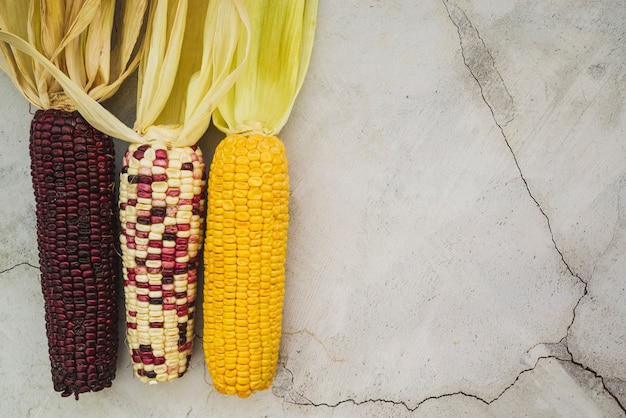
Corn on the Cob: The Ultimate Guide to Perfectly Cooked Ears
Healthy MealsAh, corn on the cob. Just the name evokes images of sunny days, barbecues, and that sweet, juicy flavour that ...
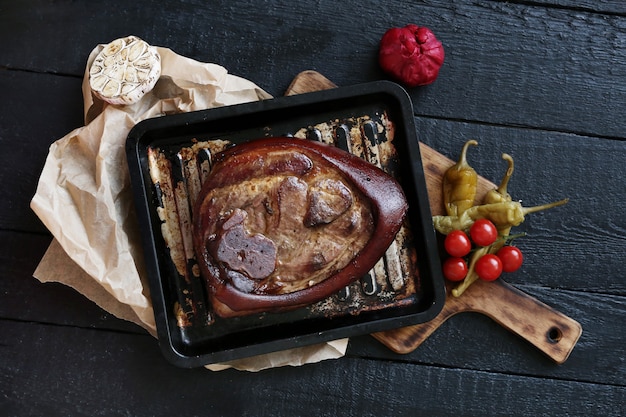
Perfect Pork Roast Oven Cooking Time: A Guide to Delicious Results
Healthy MealsThere's something truly satisfying about a perfectly roasted pork. The aroma alone is enough to make your mout...
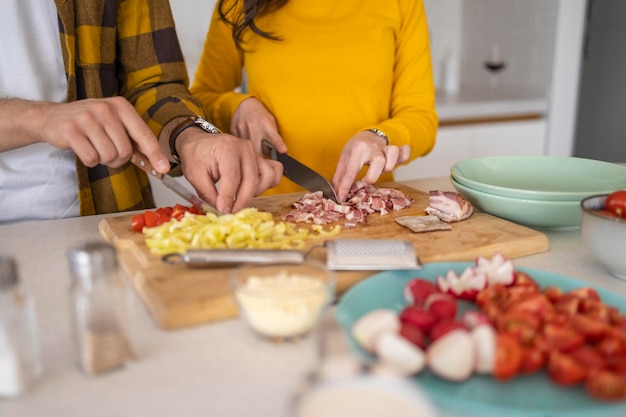
Ham Cooking Time: How Long to Bake, Smoke, or Boil a Delicious Ham
Healthy MealsAh, ham. It's a classic, isn't it? A real crowd-pleaser, especially around holidays. And when done right, it'...
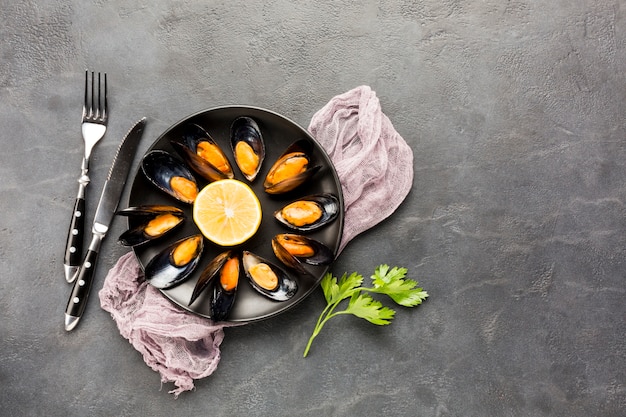
Scallops: The Ultimate Guide to Perfect Cooking
Healthy MealsAh, scallops. Those delicate, sweet, and utterly delicious morsels of the sea. They hold a special place in my...
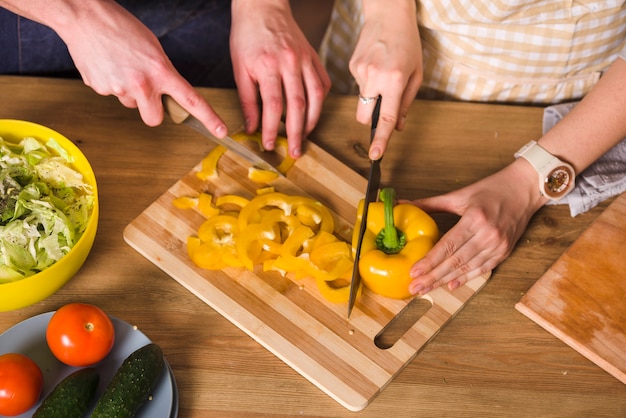
Spaghetti Squash: The Ultimate Guide to Cooking and Serving
Healthy MealsRemember that time you saw spaghetti squash at the supermarket, looking all bumpy and strange, and thought, "W...
